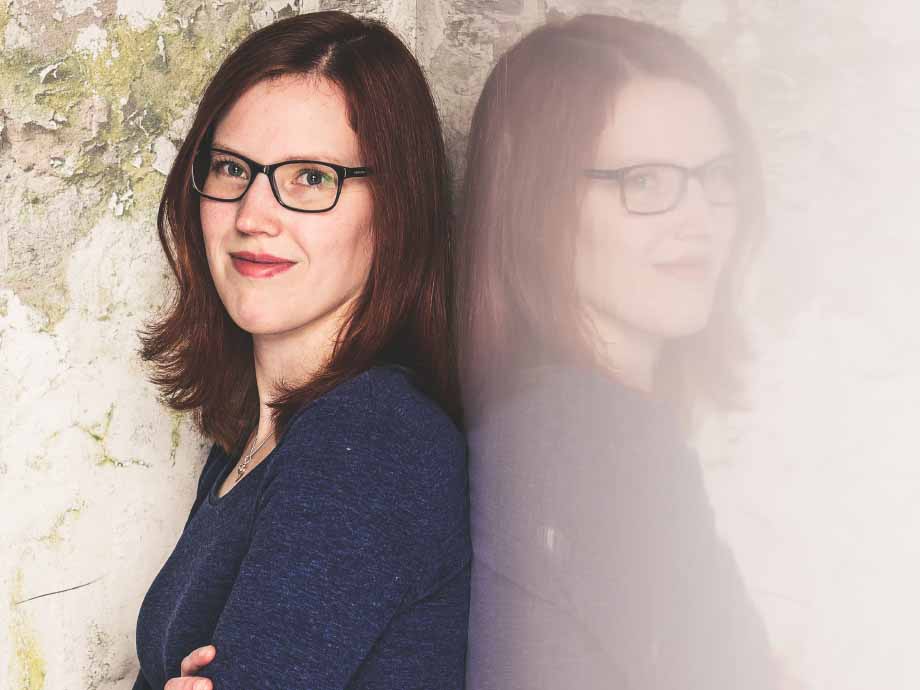Published on 05.01.2024
Reinforcing AI in Cancer Research: Annika Reinke Awarded Richtzenhain Doctoral Prize

The Richtzenhain Doctoral Prize recognizes Annika Reinke’s pioneering work at Helmholtz Imaging and DKFZ in advancing biomedical image analysis for cancer research
The prestigious Richtzenhain Doctoral Prize, awarded every two years, acknowledges exceptional accomplishments in the field of cancer research. This esteemed award is dedicated to acknowledging and honoring outstanding dissertations that have achieved successful completion at research institutes affiliated with Heidelberg or the University of Heidelberg. Dr. Annika Reinke, a researcher of the Helmholtz Imaging Research Unit at DKFZ Heidelberg, was among the six prize awardees of 2023. The prize is awarded with 2,000 euros.
We interviewed Annika to delve into her research, accomplishments, and future plans.
HI: Congratulations on being awarded the Richtzenhain Doctoral Prize! Can you share with us the key focus of your research and its potential impact on the field?
Annika: Thank you! My research is related to the validation of AI-based biomedical image analysis algorithms, particularly those focusing on cancer research. In my work, my team and I systematically revealed very critical quality issues in validation practice. Have you ever heard about the problem that only very few AI solutions are currently translated into clinical practice? Flawed validation practice is one of the key reasons for this. After raising awareness, my team and I have actively worked on solutions to eliminate those flaws. These solutions range from dedicated reporting guidelines and rigorous review processes to toolkits for visualizing rankings and recommending metrics.
How has your experience in the Helmholtz Imaging Research Unit at DKFZ contributed to your achievements, and what aspects of your research are you particularly proud of?
One of the core concepts of my work is collaborative research. In multiple of my projects, my team and I led international expert consortia to tackle high-impact research questions. One example would be our ‘Metrics Reloaded’ initiative, in which a total of 73 international researchers took part. While the initiative was led by the Helmholtz Imaging Research Unit at DKFZ, we used our network within Helmholtz to build the consortium, including Helmholtz members and their connections to both international research departments and industry partners. I am proud of our large network and the various expertises of all researchers involved in my projects! It is a pleasure to take the opportunity to think outside the box and get input from all these different communities.
The Richtzenhain Prize is known for acknowledging outstanding contributions to cancer research. Could you provide some insights into how your research aligns with addressing challenges or advancing knowledge in this field of research?
The presence of flawed validation practices suggests that an algorithm producing partially or entirely inaccurate results – like consistently predicting that a patient doesn’t have cancer, although he or she actually has a tumor – could still receive a high performance score. In real-world scenarios, researchers may neglect to quantitatively verify their results when the score is high. This situation poses a potential threat, allowing the deployment of an algorithm harming patient safety and well-being. My aim is to highlight the considerable risks associated with such research practices and encourage the community to adopt more rigorous scientific methodologies. My team and I consequently developed practical solutions, guidelines, and recommendations to assist researchers in conducting higher-quality research validation.
Looking ahead, what are your future plans or aspirations in terms of continuing your research journey? How do you envision your contributions evolving in the coming years?
The integration of better research practice doesn’t happen overnight. It requires a lot of active work to remind and educate the community. For example, the Special Interest Group for Challenges of the Medical Image Computing and Computer Assisted Intervention (MICCAI) Society, for which I am the secretary, has started a webinar series on validation-related topics. Also, I plan to broaden my previous work towards more use cases, e.g., including developing a framework for metric recommendations in surgical video understanding, and actively search for other flaws in our research practice. I will continue my current role as a group lead and postdoctoral researcher for validation of intelligent systems within my department.
Thanks for having a chat with us! We wish you continued success in your research journey.

Dr. Annika Reinke earned her PhD degree in 2023, focusing on eliminating flaws in biomedical image analysis validation. She continues her work as a postdoctoral researcher and deputy head of the Div. Intelligent Medical Systems at DKFZ by addressing underrepresented societally relevant topics, particularly scientific benchmarking and validation. Leading the “Validation of Intelligent Systems” group at the Helmholtz Imaging Research Unit at DKFZ, Dr. Reinke aims to enhance the quality of validation pipelines for biomedical AI algorithms. She holds influential positions in various international groups, including the secretary of the MICCAI Special Interest Group on biomedical challenges and a taskforce lead in the MONAI Working Group on evaluation, reproducibility, and benchmarking.